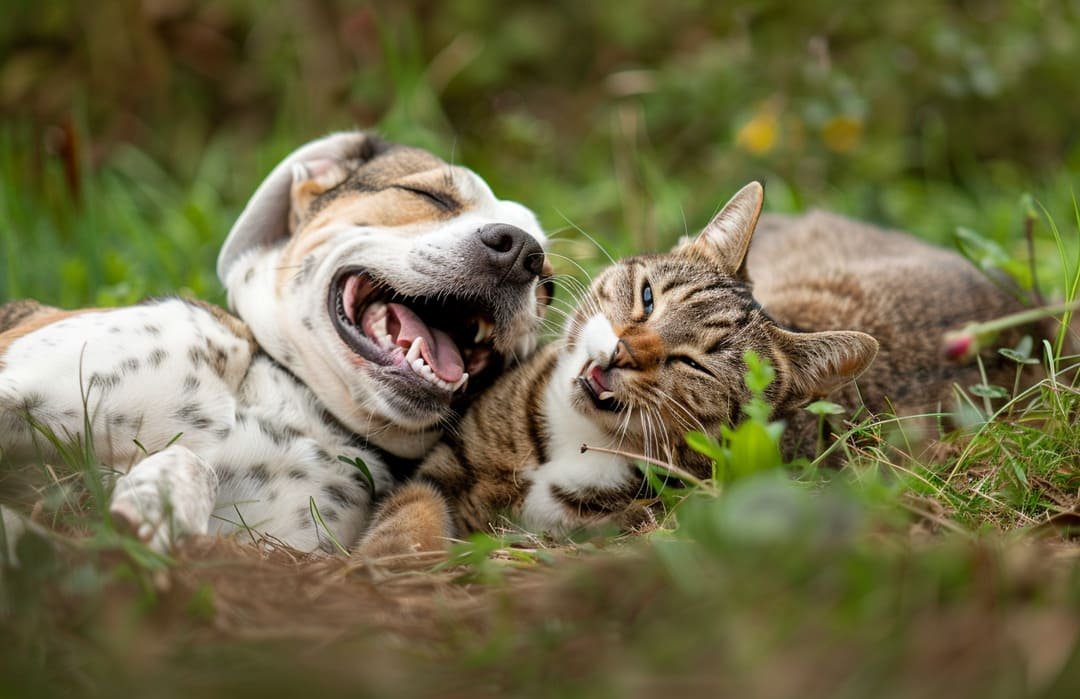Picture this – you notice your beloved feline companion's cat eye is watery, and you wonder what could be causing it. A cat's eyes are a window into their health and well-being, and changes in their eyes can signal underlying issues that require attention. In this blog post, we delve into the possible reasons why your cat's eye may be watery, the signs to watch for, and how to provide the best care for your pet's precious eyes. Let's embark on a journey to understand and safeguard your cat's ocular health.
Signs and Symptoms to Look Out For
Identifying Potential Issues
When a cat's eye is watery, it can indicate underlying problems that require attention. Keep an eye out for these signs and symptoms:
-
Redness and inflammation: Irritation or infection can cause redness in the eye.
-
Discharge consistency: Note the color and texture of any discharge, as it can vary depending on the cause.
-
Squinting or pawing at the eye: Cats may exhibit discomfort by squinting or repeatedly pawing at the affected eye.
-
Changes in behavior: Watch for changes in your cat's behavior, such as reduced activity or appetite, which can indicate pain or discomfort.
Monitoring and Documentation
To effectively communicate your observations to a veterinarian, consider documenting the following details:
-
Frequency of watery eyes
-
Visible changes in eye appearance
-
Any concurrent symptoms like sneezing or coughing
-
Any recent exposure to potential irritants
Seeking Professional Help
If you notice any of the above signs or symptoms persisting or worsening, it is crucial to consult a veterinarian promptly. They can conduct a thorough examination to diagnose the underlying cause of your cat's watery eye and recommend appropriate treatment options.
Visit PetSmart's guide for more information on cat eye care and common eye issues.
How to Treat Your Cat's Watery Eyes
Consulting a Veterinarian
When your cat's eye is watery, seeking professional advice is essential. A veterinarian can conduct a detailed examination to determine the root cause of the issue and recommend appropriate treatments.
Home Remedies and Care Tips
In addition to veterinary care, certain home remedies and practices can help alleviate your cat's watery eyes:
-
Gentle cleaning: Use a soft, damp cloth to gently clean any discharge around the eye.
-
Warm compress: Applying a warm compress can help soothe irritation and promote drainage.
-
Monitor diet: Ensure your cat's diet is well-balanced with essential nutrients that support eye health.
Medication Options
In some cases, veterinarians may prescribe medications to treat specific underlying conditions causing watery eyes in cats:
-
Antibiotic eye drops: To treat bacterial infections.
-
Antihistamines: For allergies causing eye irritation.
-
Steroid eye drops: To reduce inflammation and discomfort.
Follow-Up Care
After initiating treatment, it is important to follow your veterinarian's instructions diligently. Monitor your cat's progress and attend scheduled follow-up appointments to ensure the effective management of their eye condition.
For additional guidance on cat eye health and treatment options, refer to Chewy's comprehensive pet care resources.
Preventative Measures to Maintain Healthy Cat Eyes
Regular Grooming and Cleaning
Proper grooming plays a vital role in maintaining your cat's eye health. Follow these grooming tips to prevent watery eyes:
-
Regular eye cleaning: Gently wipe around your cat's eyes with a damp cloth to remove any debris or discharge.
-
Trimming fur: Long fur around the eyes can irritate them, so keep it trimmed to reduce irritation.
-
Maintain overall hygiene: Ensure your cat's living environment is clean to reduce the risk of eye infections.
Monitoring for Changes in Eye Appearance
Consistent monitoring of your cat's eyes can help detect early signs of potential issues. Look out for the following changes:
-
Cloudiness or opacity in the eye
-
Increased tearing or discharge
-
Redness or swelling
-
Changes in pupil size or shape
Providing a Balanced Diet
Nutrition plays a significant role in maintaining your cat's overall health, including their eye health. Consider the following dietary tips:
-
Incorporate omega-3 fatty acids: Essential for eye health and reducing inflammation.
-
Ensure proper hydration: Dehydration can contribute to eye problems, so provide fresh water at all times.
-
Consult a veterinarian: Get advice on the best diet for your cat to support their eye health.
Regular Veterinary Check-ups
Schedule routine check-ups with your veterinarian to assess your cat's overall health, including their eye health. Early detection and intervention can help prevent serious eye issues and ensure your cat's eyes remain clear and healthy.
For more insights on pet nutrition and wellness, refer to Petco's expert pet care advice.
Understanding When Emergency Care Is Needed
Sudden Onset of Symptoms
If your cat's eye suddenly becomes excessively watery or shows severe signs of irritation, seek immediate veterinary care. Rapid onset symptoms may indicate a serious underlying issue that requires urgent attention.
Severe Redness or Swelling
Persistent redness, swelling, or inflammation around the eye can signal a more severe condition. These symptoms should not be ignored and warrant immediate evaluation by a professional to prevent potential complications.
Changes in Eye Appearance
Any notable changes in the appearance of your cat's eye, such as cloudiness, discharge with a foul odor, or visible injuries, should be considered red flags. These changes may indicate infections, injuries, or other critical conditions that demand prompt intervention.
Acting Promptly in Emergency Situations
In emergency scenarios involving your cat's eye health, it is crucial to act swiftly. Contact your veterinarian or an emergency veterinary clinic to receive timely care and address the issue effectively. Delaying treatment in such cases can exacerbate the problem and jeopardize your cat's eye health.
For further information on identifying emergency signs and seeking immediate care, visit PetSmart's emergency pet care guide.
Importance of Routine Veterinary Check-ups
Early Detection of Eye Issues
Regular veterinary check-ups are crucial for maintaining your cat's overall health, including their eye health. Veterinarians can identify potential eye problems in the early stages, allowing for timely intervention and management.
Professional Advice on Care and Prevention
Veterinarians provide valuable insights into caring for your cat's eyes and preventing issues. They can recommend specific preventive measures, dietary adjustments, and hygiene practices to safeguard your cat's eye health.
Ensuring Overall Eye Health
Routine check-ups help ensure that your cat's eyes remain healthy and free from underlying conditions. Through comprehensive examinations, veterinarians can assess any changes in eye health, prescribe treatments as needed, and offer guidance on long-term care.
Scheduling Regular Examinations
Make a habit of scheduling routine veterinary appointments for your cat, even when they seem healthy. Prevention and early detection are key in maintaining your cat's eye health and overall well-being.
For expert advice on pet care and the importance of regular check-ups, visit Petco's resource on pet health.
Conclusion: Taking Care of Your Cat's Eyes
Recap of Common Causes and Symptoms
When your cat's eye is watery, several potential reasons could be responsible, such as foreign object irritation, allergies, blocked tear ducts, or conjunctivitis. It is essential to recognize the signs and symptoms early to address the issue promptly.
Emphasizing the Importance of Prompt Attention
Prompt attention to your cat's watery eyes is vital for their well-being. Ignoring or delaying treatment can lead to complications and discomfort for your feline companion. Regular monitoring and swift action can help maintain your cat's eye health.
Encouraging Proactive Eye Care
By proactively caring for your cat's eyes through grooming, monitoring, and veterinary check-ups, you can help prevent issues and ensure their eyes remain clear and comfortable. Stay attentive to any changes and seek professional guidance when needed.
For more tips on pet care and wellness, explore Chewy's comprehensive pet care resources for valuable insights on maintaining your cat's health and happiness.
Cat Eye Is Watery: Understanding and Taking Care of Your Pet's Health
When your cat's eye is watery, it could be a symptom of various underlying issues that require attention. Here are some common causes, symptoms to watch for, and how to provide proper care for your feline companion's eye health.
Common Causes of Watery Eyes in Cats
-
Foreign object irritation: Dust, fur, or debris can lead to watery eyes.
-
Allergies: Environmental allergens or food sensitivities can cause eye irritation.
-
Blocked tear ducts: Obstructions can prevent tears from draining normally.
-
Conjunctivitis: Inflammation of the eye's outer layer can result in watery eyes.
Symptoms and Signs to Look Out For
-
Redness and inflammation: Indicates irritation or infection.
-
Discharge consistency: Note color and texture for insights into the underlying cause.
-
Squinting or pawing at the eye: Signs of discomfort and pain.
-
Changes in behavior: Reduced activity or appetite may indicate eye discomfort.
Seeking Professional Help and Home Remedies
If symptoms persist or worsen, consult a veterinarian for a thorough examination and treatment recommendations. Additionally, gentle cleaning, warm compresses, and proper diet can help alleviate discomfort associated with watery eyes.
For further guidance on pet eye care, refer to PetSmart's guide for valuable insights and care tips tailored to your pet's needs.
FAQs About Your Cat's Watery Eyes
1. Why is my cat's eye watery?
Watery eyes in cats can be due to various reasons, including foreign object irritation, allergies, blocked tear ducts, or eye infections. It's essential to observe other symptoms and seek veterinary advice for a proper diagnosis.
2. Should I be concerned if my cat's eye is watery occasionally?
Occasional watery eyes can be normal, but if the issue persists or is accompanied by other symptoms like redness or squinting, it's advisable to consult a veterinarian to rule out any underlying conditions.
3. Can I clean my cat's watery eyes at home?
You can gently clean around your cat's eyes with a soft, damp cloth to remove any discharge. However, if the watery eyes persist or worsen, it's best to have a professional assess the situation.
4. How can I prevent my cat's eyes from becoming watery?
Maintaining good eye hygiene, ensuring a balanced diet rich in essential nutrients, and scheduling regular veterinary check-ups can help prevent eye issues and keep your cat's eyes healthy.
5. When should I seek emergency care for my cat's watery eyes?
If you notice sudden onset of severe symptoms like excessive redness, swelling, or changes in eye appearance, it's crucial to seek emergency veterinary care to address the issue promptly and prevent complications.


